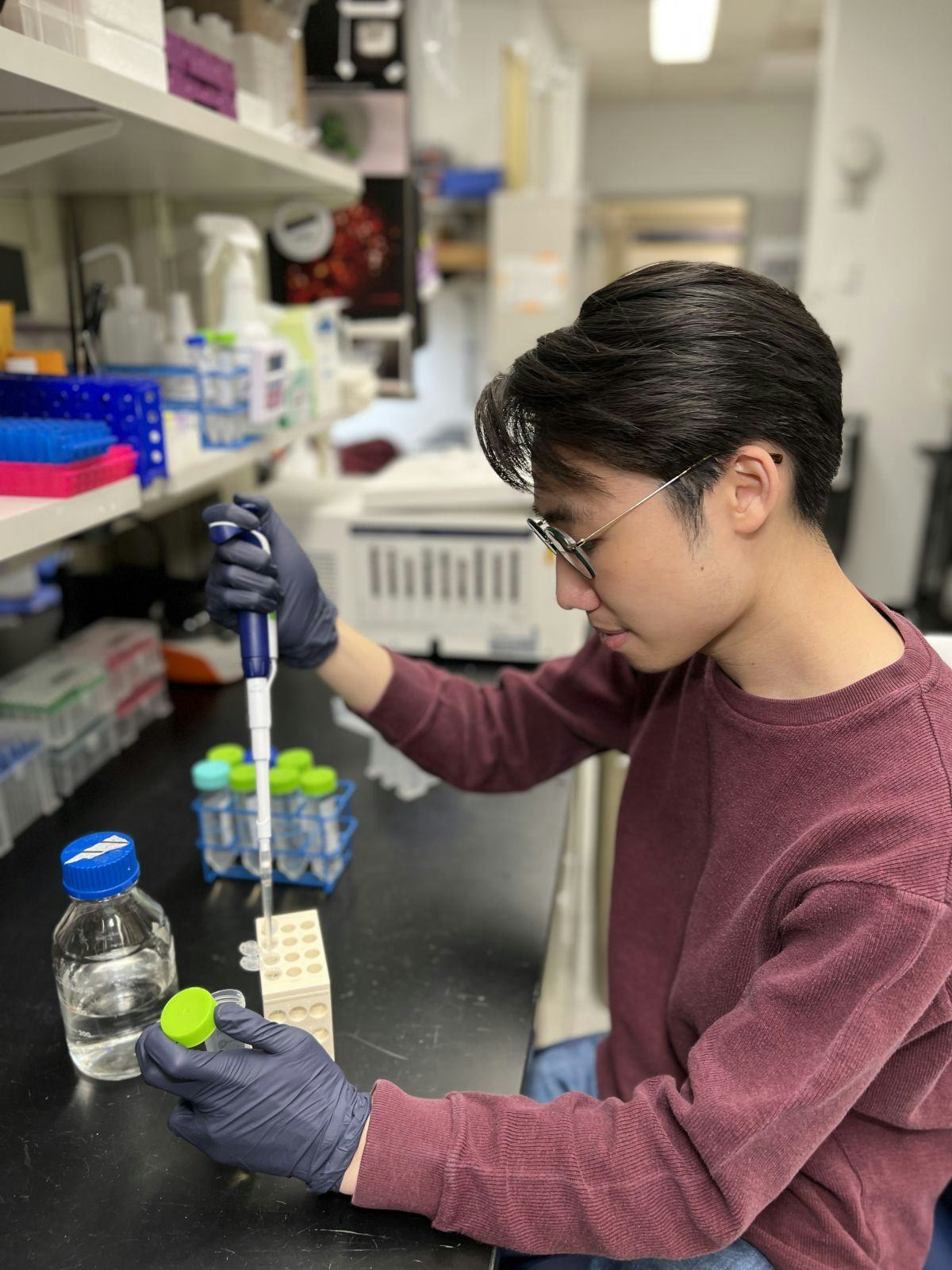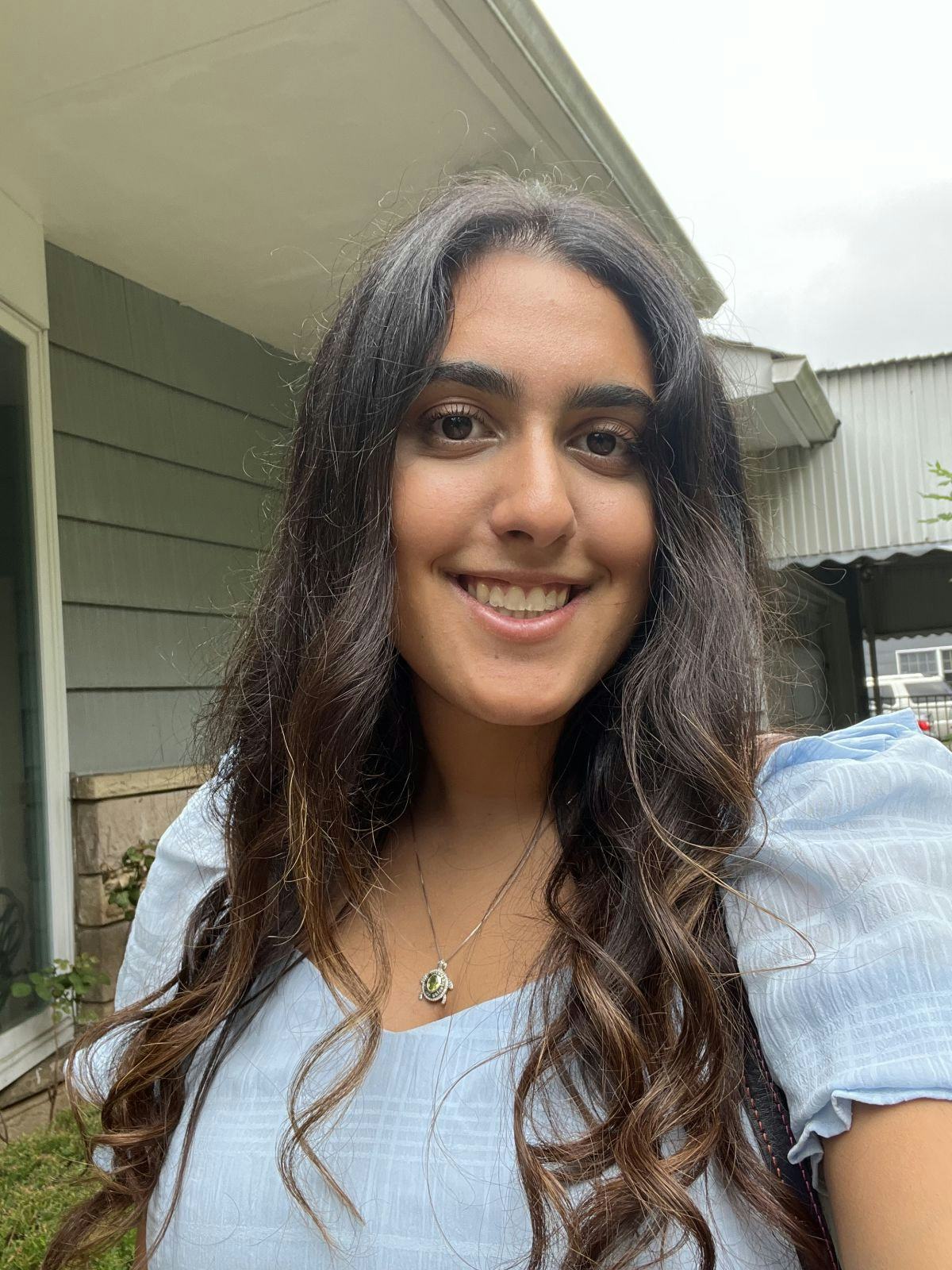Helping Chemistry and Chemical Biology Students Fast-track Their Academic and Professional Goals
Through the Stevens Accelerated Master’s Program, students complete their bachelor’s and master’s degrees in five years while gaining practical skills and valuable networks to succeed after graduation
Douglas Kung, B.S. ’21, M.S. ’22, decided to enroll in the Chemistry and Chemical Biology Accelerated Master’s Program (CCB AMP) at Stevens Institute of Technology for a simple reason – he didn’t want to be a dentist.
“My mom is a dentist, and I had always thought I wanted to be one too,” recalled Kung, who studied chemical biology at Stevens. “During COVID, she needed extra help, and I spent a few months working with her during the summer between my third and fourth years of college. I soon realized I hated it! And I missed being in the lab.”
During the pandemic, he had completed most of his coursework online, without access to the lab he loved. The summer after earning his undergraduate degree, he decided he wanted more. That’s when he applied and was accepted to the AMP, a one-year research master’s platform designed to elevate scientific reasoning and communication skills to help students gain confidence about their professional pathways. Participants earn both their undergraduate and graduate degrees in five years.
‘I owe the fact that I'm studying for my Ph.D. to having been in the AMP’
“Many students don’t know what they’ll do after graduation,” said Marcin Iwanicki, assistant professor in the CCB. “This extra year allows them to think about this in the environment of frequent student-instructor interaction, which is predominantly focused on supporting career decisions and obtaining an M.S. degree, and certificates in drug discovery or computational chemistry and biology.”
Students can double-count up to nine undergraduate credits – 30 percent of the AMP requirements – toward the master’s degree.
“That gave me a somewhat lighter credit load, which allowed me to explore other interests, including contributing meaningfully to ovarian cancer research in the Iwanicki Lab, being a full-time teaching assistant for the biology labs, and applying to Ph.D. programs,” Kung noted. “Having to juggle so many things taught me discipline and how to manage my time, and it gave me the stamina to work long hours, which has been useful in pursuing my Ph.D. in tumor biology at Georgetown University.”
AMP students can also improve both their lab skills and their communication skills with individual project presentations, laboratory meetings and increased student-mentor interaction. Through interaction with seminar speakers and external advisory board members who are leaders in the biotechnology industry, students also have excellent networking opportunities.
The core of the CCB AMP is student-mentor interaction through research and education. As the students become colleagues in developing and executing projects, the students and faculty learn from each other.
Kung credits the AMP, and in particular Marcin Iwanicki, assistant professor in the CCB, for sparking his interest in earning his doctorate.
“I never would have wanted to study cancer biology if it weren't for Dr. Iwanicki,” Kung said. “He is an excellent cancer biologist, and he trained me to think carefully about the questions that I was interested in. That’s how I learned to ask the bigger questions, which is one of the most important things in biology. He's passionate about teaching the nitty gritty of molecular biology in terms of cancer pathogenesis and transformed cells, and he also told great stories about the extensive history of cancer biology and the major discoveries that led to great cancer interventions. That’s how I realized that I wanted to pursue this as a discipline to solve meaningful problems. I owe the fact that I'm studying for my Ph.D. to having been in the AMP – it helped me realize an academic career was possible.”
‘It offers a wide variety of enriching courses’
Maria Mihalatos, a member of the AMP Class of 2025, decided to enroll in the AMP because she was excited to continue her research at the Iwanicki Lab as well.
“I was intrigued by the flexibility of the program,” said Mihalatos, who will earn her bachelor’s degree in biology and her master’s degree in chemical biology. “It offers a wide variety of enriching courses, as well as the opportunity to take courses with professors I had already known throughout my undergraduate journey, and continue research that interested me.”
She is also serving as a tour guide with the Stevens Undergraduate Admissions team and a patient advocate with several healthcare associations, and continuing her beloved work as a research associate at the Iwanicki Lab.
“When I do research, I feel that I am making a rewarding and worthwhile contribution toward the cure of ovarian cancer,” Mihalatos said. “My grandmother has been battling this disease for more than 12 years. Any meaningful contribution I can make will help not only her but also all the true fighters of the world. In the end, this will make all the difference.”
Here’s a sampling of some of the other AMP graduates who have moved on to medical schools, top-tier graduate programs, and leading companies in the biotech and pharmaceutical space:
Taylor Schaad ’21, R&D and innovation engineer at jewelry designer David Yurman
Emily McGuire ’22, associate research scientist at In Vitro Cell Research
Everett Stewart ’23, medical student at Touro University of Nevada
Kaylyn Spotton ’22, graduate student at the Sloan Kettering Institute, and the Tri-Institutional PhD program
The Department of Chemistry and Chemical Biology is expanding its Accelerated Master's Program pipeline by partnering with local colleges to send students to the program.



